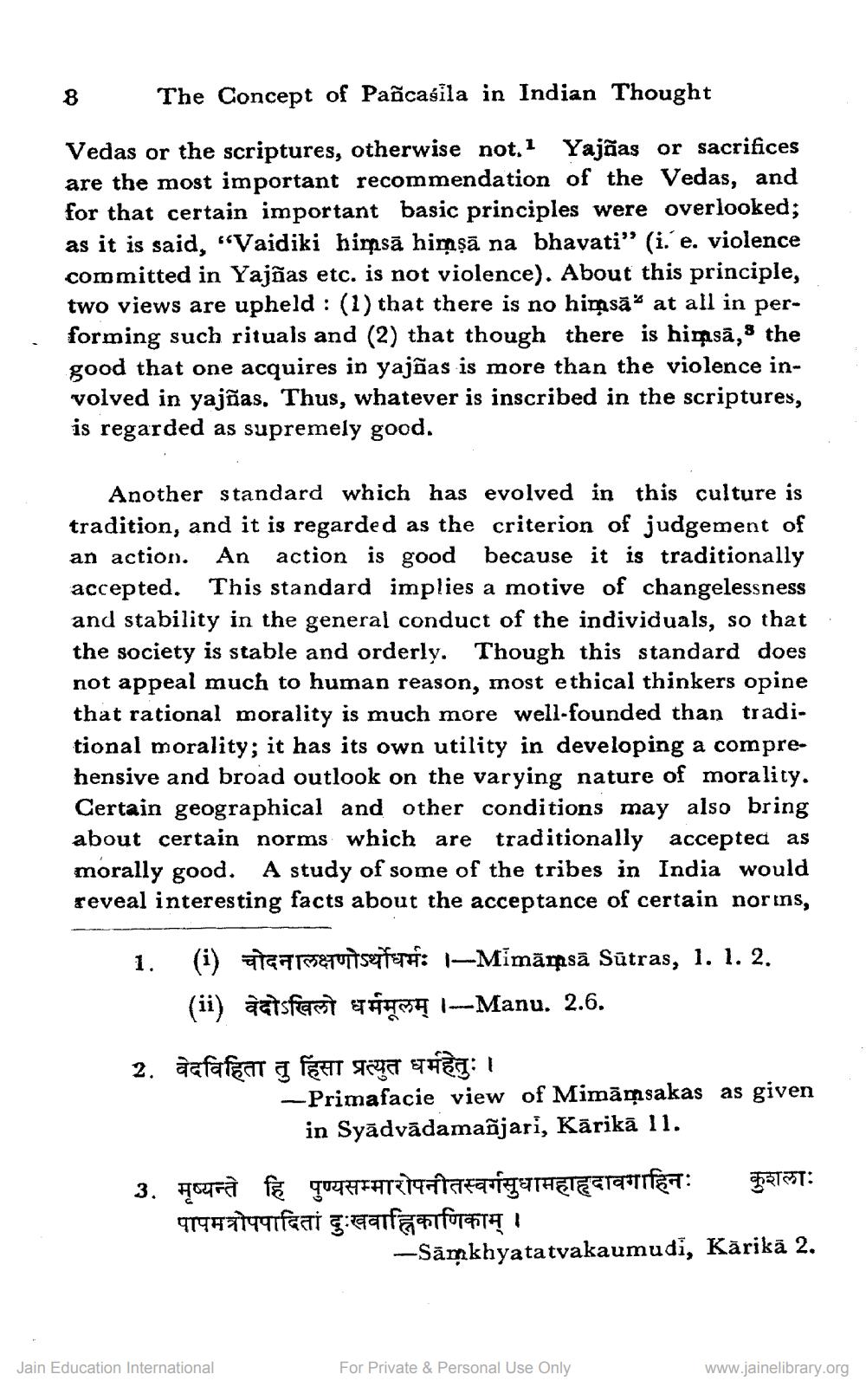________________
8
The Concept of Pancasila in Indian Thought
Vedas or the scriptures, otherwise not, 1 Yajāas or sacrifices are the most important recommendation of the Vedas, and for that certain important basic principles were overlooked; as it is said, “Vaidiki himsā hiņşā na bhavati" (i. e. violence committed in Yajñas etc. is not violence). About this principle, two views are upheld : (1) that there is no himsā” at all in performing such rituals and (2) that though there is himsā,s the good that one acquires in yajñas is more than the violence involved in yajñas. Thus, whatever is inscribed in the scriptures, is regarded as supremely good.
Another standard which has evolved in this culture is tradition, and it is regarded as the criterion of judgement of an action. An action is good because it is traditionally accepted. This standard implies a motive of changelessness and stability in the general conduct of the individuals, so that the society is stable and orderly. Though this standard does not appeal much to human reason, most ethical thinkers opine that rational morality is much more well-founded than traditional morality; it has its own utility in developing a comprehensive and broad outlook on the varying nature of morality. Certain geographical and other conditions may also bring about certain norms which are traditionally accepted as morally good. A study of some of the tribes in India would reveal interesting facts about the acceptance of certain noris,
1.
(i) zitaarTUISTETA: -Mimārpsā Sūtras, 1. 1. 2. (ii) aatsfacit 1--Manu. 2.6.
2. aafa feat g fett sogar TheT: 1
– Primafacie view of Mimāmsakas as given
in Syādvādamañjari, Kārikā 11. 3. मृष्यन्ते हि पुण्यसम्मारोपनीतस्वर्गसुधामहाहृदावगाहिनः कुशलाः पापमत्रोपपादितां दुःखवाह्निकाणिकाम् ।
-Sārkhyatatvakaumudi, Kārikā 2.
Jain Education International
For Private & Personal Use Only
www.jainelibrary.org




